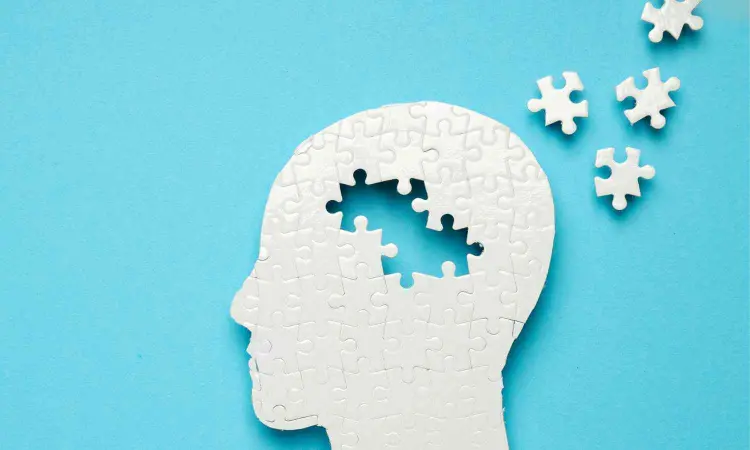- Home
- Medical news & Guidelines
- Anesthesiology
- Cardiology and CTVS
- Critical Care
- Dentistry
- Dermatology
- Diabetes and Endocrinology
- ENT
- Gastroenterology
- Medicine
- Nephrology
- Neurology
- Obstretics-Gynaecology
- Oncology
- Ophthalmology
- Orthopaedics
- Pediatrics-Neonatology
- Psychiatry
- Pulmonology
- Radiology
- Surgery
- Urology
- Laboratory Medicine
- Diet
- Nursing
- Paramedical
- Physiotherapy
- Health news
- Fact Check
- Bone Health Fact Check
- Brain Health Fact Check
- Cancer Related Fact Check
- Child Care Fact Check
- Dental and oral health fact check
- Diabetes and metabolic health fact check
- Diet and Nutrition Fact Check
- Eye and ENT Care Fact Check
- Fitness fact check
- Gut health fact check
- Heart health fact check
- Kidney health fact check
- Medical education fact check
- Men's health fact check
- Respiratory fact check
- Skin and hair care fact check
- Vaccine and Immunization fact check
- Women's health fact check
- AYUSH
- State News
- Andaman and Nicobar Islands
- Andhra Pradesh
- Arunachal Pradesh
- Assam
- Bihar
- Chandigarh
- Chattisgarh
- Dadra and Nagar Haveli
- Daman and Diu
- Delhi
- Goa
- Gujarat
- Haryana
- Himachal Pradesh
- Jammu & Kashmir
- Jharkhand
- Karnataka
- Kerala
- Ladakh
- Lakshadweep
- Madhya Pradesh
- Maharashtra
- Manipur
- Meghalaya
- Mizoram
- Nagaland
- Odisha
- Puducherry
- Punjab
- Rajasthan
- Sikkim
- Tamil Nadu
- Telangana
- Tripura
- Uttar Pradesh
- Uttrakhand
- West Bengal
- Medical Education
- Industry
Muscle loss linked to increased dementia risk, claims study

Skeletal muscle loss is a risk factor for developing dementia, according to a study being presented today at the annual meeting of the Radiological Society of North America (RSNA).
Skeletal muscles make up about one-third of a person’s total body mass. They are connected to the bones and allow for a wide range of movements. As people grow older, they begin to lose skeletal muscle mass.
Because age-related skeletal muscle loss is often seen in older adults with Alzheimer’s disease (AD) dementia, this study aimed to examine whether temporalis muscle loss (a measure of skeletal muscle loss) is associated with an increased risk of AD dementia in older adults.
The temporalis muscle is located in the head and is used for moving the lower jaw. Studies have shown that temporalis muscle thickness and area can be an indicator of muscle loss throughout the body.
“Measuring temporalis muscle size as a potential indicator for generalized skeletal muscle status offers an opportunity for skeletal muscle quantification without additional cost or burden in older adults who already have brain MRIs for any neurological condition, such as mild dementia,” said the study’s lead author, Kamyar Moradi, M.D., postdoctoral research fellow in the Russell H. Morgan Department of Radiology and Radiological Sciences at Johns Hopkins University School of Medicine in Baltimore. “This is the first longitudinal study to demonstrate that skeletal muscle loss may contribute to the development of dementia.”
For the multidisciplinary research study, a collaboration between the radiology and neurology departments at Johns Hopkins Medical Institutions, Dr. Moradi and colleagues used baseline brain MRI exams from the Alzheimer’s Disease Neuroimaging Initiative cohort to quantify skeletal muscle loss in 621 participants without dementia (mean age 77 years).
The researchers manually segmented the bilateral temporalis muscle on MRI images and calculated the sum cross-sectional area (CSA) of these muscles. Participants were categorized into two distinct groups: large CSA (131 participants) and small CSA (488 participants). Outcomes included subsequent AD dementia incidence, change in cognitive and functional scores, and brain volume changes between the groups. Median follow-up was 5.8 years.
Based on their analysis, a smaller temporalis CSA was associated with a higher incidence risk of AD dementia. Furthermore, a smaller temporalis CSA was associated with a greater decrease in memory composite score, functional activity questionnaire score and structural brain volumes over the follow-up period.
“We found that older adults with smaller skeletal muscles are about 60% more likely to develop dementia when adjusted for other known risk factors,” said the study’s co-senior author and professor of neurology, Marilyn Albert, Ph.D.
According to Shadpour Demehri, M.D., co-senior author and professor of radiology, the study demonstrates that this muscle change can be opportunistically analyzed through any conventional brain MRI, even when conducted for other purposes, without incurring additional costs or burdens.
Dr. Albert pointed out that early detection through readily available brain MRI could enable timely interventions to address skeletal muscle loss, such as physical activity, resistance training and nutritional support.
“These interventions may help prevent or slow down muscle loss and subsequently reduce the risk of cognitive decline and dementia,” Dr. Demehri said.
Reference:
Muscle loss could increase dementia risk, Radiological Society of North America, Meeting: 110th Scientific Assembly and Annual Meeting of the Radiological Society of North America.
Dr Kamal Kant Kohli-MBBS, DTCD- a chest specialist with more than 30 years of practice and a flair for writing clinical articles, Dr Kamal Kant Kohli joined Medical Dialogues as a Chief Editor of Medical News. Besides writing articles, as an editor, he proofreads and verifies all the medical content published on Medical Dialogues including those coming from journals, studies,medical conferences,guidelines etc. Email: drkohli@medicaldialogues.in. Contact no. 011-43720751


